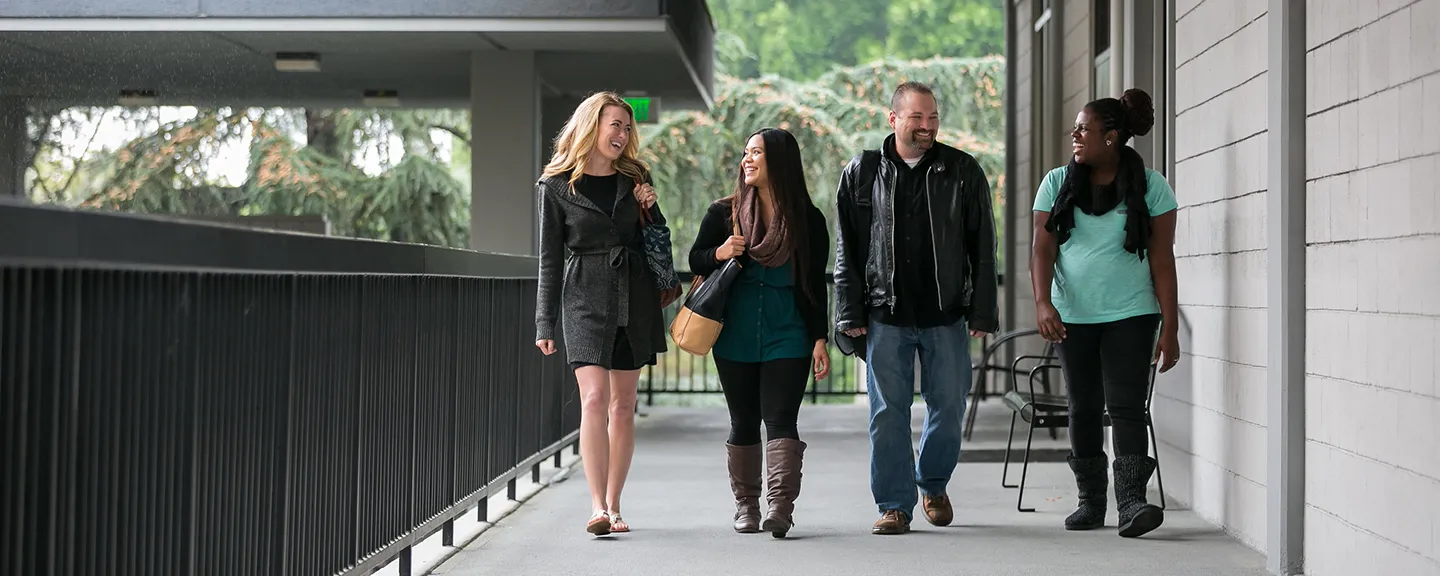- Home
- >
- APU Articles
- >
- News Article
Grad School Tips: 4 Ways to Make a Successful Transition
April 04, 2020 | Written By Tobin Perry

Many people assume their graduate school experience will be a continuation of what they did as an undergraduate—but it can be quite different. Ultimately, these differences make the grad school experience new and gratifying, but they may surprise you if you’re not prepared for them.
We’ve got you covered. Here are four grad school tips to help you make the important transition from undergraduate to graduate student a successful one.
1. Learn to Self-Motivate
Many undergraduates begin their college years right after high school. When students take that step, it feels like a large leap toward independence—and it is—but graduate school is another big step forward in your academic journey.
Joseph Bentz, PhD, English professor at Azusa Pacific University, spent more than 20 years directing the school’s Alpha Chi Scholars Association, which helped students get into graduate schools. He noted that graduate school classes require students to take a more active role in their education, so it’s important to be self-motivated.
“In grad courses, a greater burden is often placed on the students to pursue their research, problem-solve, read deeply and independently, and, in general, to take more responsibility for their education,” Bentz said.
2. Be Prepared to Work as Part of a Team
Many graduate programs prepare you for a lifetime of working in team environments. Considering that employers tend to look for job candidates who can cooperate as part of a team, grad school programs take this into account and expose students to these kinds of situations.
“Strong emotional quotient skills are important as students will be working more in team settings,” said Louise Ko Huang, Ph.D., assistant dean for the College of Liberal Arts and Sciences at Azusa Pacific University.
3. Pick a Course of Study You’re Passionate About
Although you had a major as an undergraduate, you probably still took a broad selection of classes in a variety of disciplines. That’s not true with graduate studies. As a grad student, you’ll study in a focused group of courses that will culminate in a very specific project—often a capstone project, thesis, or dissertation, depending on your discipline and whether you’re earning a master’s degree or doctorate. If you enjoy what you’re studying, you’ll likely have a better and more sustainable experience.
“Graduate school can be very stimulating since students get to focus on their specific topic of interest,” said Huang, who noted that grad students often pursue an ongoing, original research project alongside their coursework. “Being able to disseminate research findings through professional presentations and academic publications is an important skill to develop in graduate school.”
Bentz said while some incoming students fret over their expectations of the challenge of grad school, it can be a particularly fulfilling experience.
“To spend those years intensely studying the area you love most is absorbing and joyful,” Bentz said. “For me, grad school was one of the best times of my life. I was able to read and think and interact with other people who loved the same things I did in ways that are rare in everyday life.”
4. Understand What You’re Hoping to Accomplish
Before you start grad school, you’ll want to identify what you want to accomplish during your time as a student. This can help you keep a clear goal in sight during the years you’re studying.
Bentz suggested asking yourself a set of questions before getting started: Why do I want to go to grad school? Is that the best way to pursue my interests? Will it benefit me in my field? What do I want to accomplish once I get there?
“Undergrads can simply show up and let others tell them what they need to know, but with grad school, it is better to enter with a plan for what knowledge you really want to pursue and what kind of person you want to become,” Bentz said. “The burden will be on you. You can’t simply wait for someone to tell you.”
Are you interested in starting a graduate program at Azusa Pacific University? Explore APU’s graduate programs.